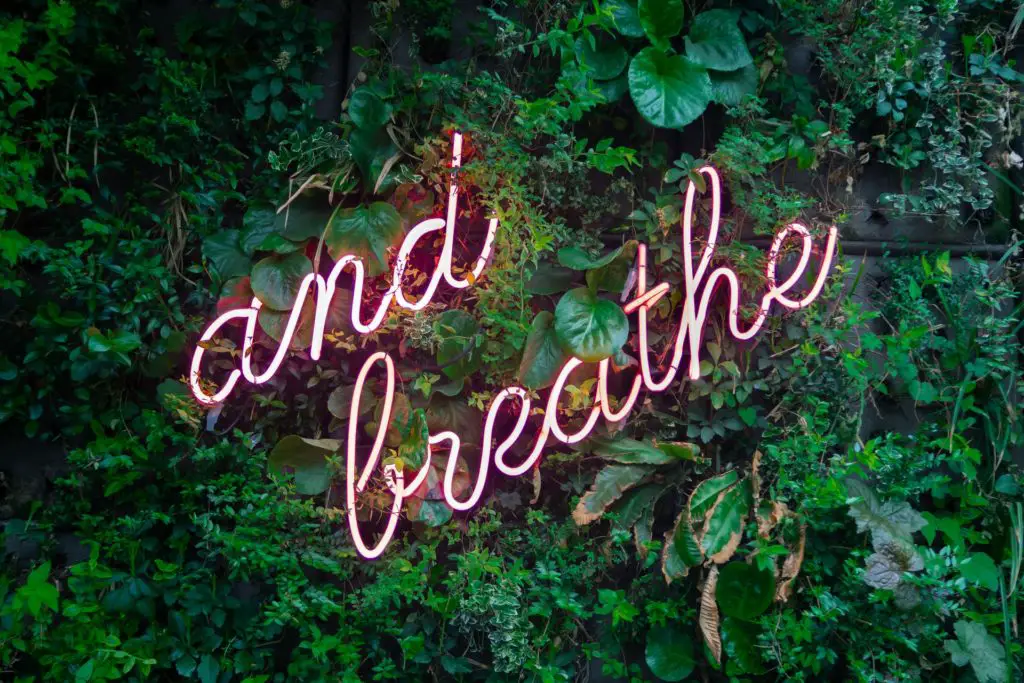How Much Do You Need in an Emergency Fund?

DISCLOSURE: THIS POST MAY CONTAIN AFFILIATE LINKS, MEANING I GET A COMMISSION IF YOU DECIDE TO MAKE A PURCHASE THROUGH MY LINKS, AT NO COST TO YOU.
Does the thought of the cost of an emergency stress you out? Will an unexpected event cause you to take on debt? One of the best things you can do for yourself financially and mentally is to build your emergency fund. Easier said than done for sure but when you have that cushion when circumstances arise, and you know they will, then you don’t have as much scurrying to do to find the cash. That is just so stressful. However, if you have an emergency fund and you find a nail in your tire or your air conditioner breaks during a blazing summer, you have something set aside to help you cover it. How do you figure out how much you need in your emergency fund?
How much should be in your emergency fund?
There are many schools of thought on this. Some say your emergency fund should have $1000. Now I don’t know about you but that barely feels like that would cover any emergency I’d have. However, it is definitely a good starting point.
What I feel is a better recommendation I have come across for your emergency fund goal is to have enough to cover your expenses for as long as you think it would take to find another job if you lost yours. I love the flexibility of this recommendation. It puts the PERSONAL in personal finance. For some, it may take three months, others six, and still others perhaps twelve months. This is a logical and finite way to come up with YOUR number.
Something you might also factor in is how much you FEEL will keep your mind at ease if you lose income for a little bit. However, whatever method you go with, you still need to choose the number of months you want to cover.
The expenses you’re looking to cover as ONLY your necessities. Usually, this entails housing, transportation, and food-related costs. Your situation may make your list a little longer but not by much. If your list of necessities is a mile long, you may need to reassess your definition of necessity. Add those necessary expenses up for a month and multiply that by the number of months you want to be covered.
READ MORE: 3 Steps to Deciding How Much of Your Paycheck to Save
READ MORE: How to recession-proof your life in 6 steps
Balancing your emergency fund with other savings goals

Photo by Anna Shvets from Pexels
It is important to work on other financial goals too. This is especially so if you want your emergency fund to cover you for a year because it may take a long time to get there. Let’s say you delay investing for three to four years building a year’s worth of emergency savings, you would have lost time in the market. It is said that the best time to invest was yesterday. The next best time is today. So to balance these goals, I would recommend saving $1000 in an emergency fund BEFORE diversifying your money into major debt repayment, growing your emergency fund, and investing. Why?
Let’s start with debt repayment. If you put all your available cash towards debt, while not having an emergency fund, what happens when your car breaks down or something in the house needs fixing? You likely would have to incur debt to pay for it. That works against your goal of paying the debt down.
In regards to investing or any long-term savings plan, it simply makes no sense to stretch yourself so thin for the future, when you can’t meet your goals today. For example, let’s you have to make a repair on your car or home costing $600. You don’t have an emergency fund and you can’t cover the cost on your own so you pay by credit card. If you can’t pay off that card when it’s due, you will pay 16-26% interest on that repair. When investing long-term, you can typically expect returns of around 6-8% a year. So if you put that $1000 in the market, rather than having an emergency fund, you would be losing money.
How to avoid spending your emergency savings
For me, the best way to avoid spending it is to put this money into an account that I don’t check often. I use Marcus’ high-yield savings account which does not come with an ATM card. So for me to get that money, I would have to do a bank-to-bank transfer which takes a few days. Find yourself a free bank account and park it there.
Don’t get carried away

The goal is not to fund a catastrophe. So there’s no need to have an emergency fund with 5 years of money saved. The emergency fund is just that – for emergencies. Emergencies like car trouble, home repair, or loss of income. If something catastrophic were to occur, then it would be time to look into resources available at your job, your long-term savings, and your community.
How to create your emergency fund: Your To-Do List
- Open an account specifically for this goal. Preferably, you would want a free high-yield (interest) savings account.
- Make the amount you save like a bill every month. It should be a part of your budget.
- Find extra ways to make money. One of the quickest ways you can do that is by selling things you aren’t using.
- Find extra savings in your budget. If you are normally spending $500 on groceries a month, see if you can get it down to $400-450. That $50-100 can go toward your emergency fund.
Want to learn money basics? Dave Ramsey is well-known in the personal finance space helping people understand their money so they can find financial peace. Check out his book below.
Do you have an emergency fund? If not, what barriers do you encounter? If you plan on creating one, how many months do you want to save for?

hari
these are seriously good tips.
emergency funds are necessary and at least from here on, I should start one for myself.
thanks for sharing!
Corinne
Great tips on building up an emergency fund, thank you. Life can throw all sorts of things your way and being prepared is key. I also agree that your emergency fund should be in an account that’s not easily accessible so it’s a lot more difficult to spend on non-essentials.
P. Benson
Yes. You have to know yourself. If it’s going to be tempting for you, then hide it from yourself.
jenyscloset
Great tips you never know when any situation arise in the future.
Christina Henry
This is very good advice. I’ve been unable to work for over 3 months due to complications during surgery. It will be a long time before I can go back to work and I’ll probably have to reduce my hours. I’m lucky, I hAve savings and no debt other than the mortgage which we’re in front of. Having an emergency fund is vital
Mina
We all need an emergency fund as we cant predict life.. Great tips and thanks for sharing!
Robyn
Yes, I have an emergency fund. The way I created it was by saving half of my tax refunds. Also, on the months that I received 3 paychecks instead of just two, I saved at least half of those. I also contributed a big chunk to my retirement fund, which I then had to use as an emergency fund when I lost my job unexpectedly and did not find a new one before my emergency savings ran out.
Also, I agree with having a separate account, but I just create a sub-account at the same financial institution. Having to wait a couple of days to have access to your emergency funds might not be helpful in a true emergency! It works just as well. Even though I know it’s there, I forget it’s there as I only get daily balance reminders on my checking account, which I intentionally keep low so I will not be tempted to go on any spending sprees. Very informative article. I am going to pin this.
P. Benson
Thank you so much for pinning it. I am so glad you have an emergency fund and it appears you have a good handle on your money. You’re a great example for those to follow, especially when using extra money to fund the account.
M of GoForTheGoals.com
This post is very timely because of the recession the pandemic caused. Now I’m ready to up my savings game. Thank you for this post!
P. Benson
You’re welcome. Yes, COVID has taught us a lot! And hopefully has woken a lot of people up to the need to cover themselves in times like these.
Aditi Jain
Great tips, you never know when the cash crunch will arise. Will definitely keep these in mind
P. Benson
That’s for sure and why everyone should have one. An expected event can throw you into a debt cycle. You can potentially avoid that with an emergency fund.
Oliver
Emergency funds are one of the financial foundations. Great post highlighting this and providing options to build yours up.
P. Benson
I love that term: financial foundation. That’s very accurate. I believe having one is necessary before making any other financial moves.
Courtney
I loved the point about starting with a $1,000 emergency base, then investing. Also, the advice on not just paying your bills ahead of time. I used to think that would give me TIME, if I lost my job. However; like you said, it doesn’t help with emergency expenses that aren’t a part of my regular expenses. Great article!
How To Save More Money on Your Electric Bill —
[…] can you do with the extra savings? Build the life you want. Add to your emergency fund. Pay down debt. Start investing. You can even use the extra money to save up to buy something you […]
How to tell when you're being frugal or being cheap —
[…] room in your budget so you can save more towards your financial goals. Pay down debt. Build that emergency fund. Start […]
How To Take Steps Toward Financial Freedom Without Being Rich —
[…] first savings goal, in my opinion, is to save $1000 in an emergency fund. While $1000 for most is not earth-shattering money, it can be a start to the buffer needed so that […]
Four Compelling Reasons to Cancel Some of Your Subscriptions —
[…] you save and put it towards your financial goals, whatever they may be. It can be to pay down debt, build your emergency fund, or start […]
Got Extra Money Coming? —
[…] going to get rich from it but it can help ease financial stress. This could help you tackle debt, build your emergency fund, save for a particular goal, start investing, […]
I Did Uber Eats for a Week - Learn How to Best Use It to Actually Make Money —
[…] READ MORE: How much do you need in an emergency fund? […]
5 Reasons You Need to Start Meal Prepping Today —
[…] You would save approximately $371.28. What could you do with that extra money? You could start an emergency fund, save for a goal, or start investing. Making your own lunch means even bigger […]
How to Save Money and See Results! —
[…] for the accounts you want to open. What are they for? Is it an emergency fund or a sinking fund? An emergency fund is an account where you have money saved for an unexpected event. Perhaps you lost your job or got […]
Why You Should Have Money In An IRA Now —
[…] READ MORE: How Much Do You Need in an Emergency Fund? […]
3 Steps to Deciding How Much of Your Paycheck to Save —
[…] READ MORE: How Much Do You Need in an Emergency Fund? […]